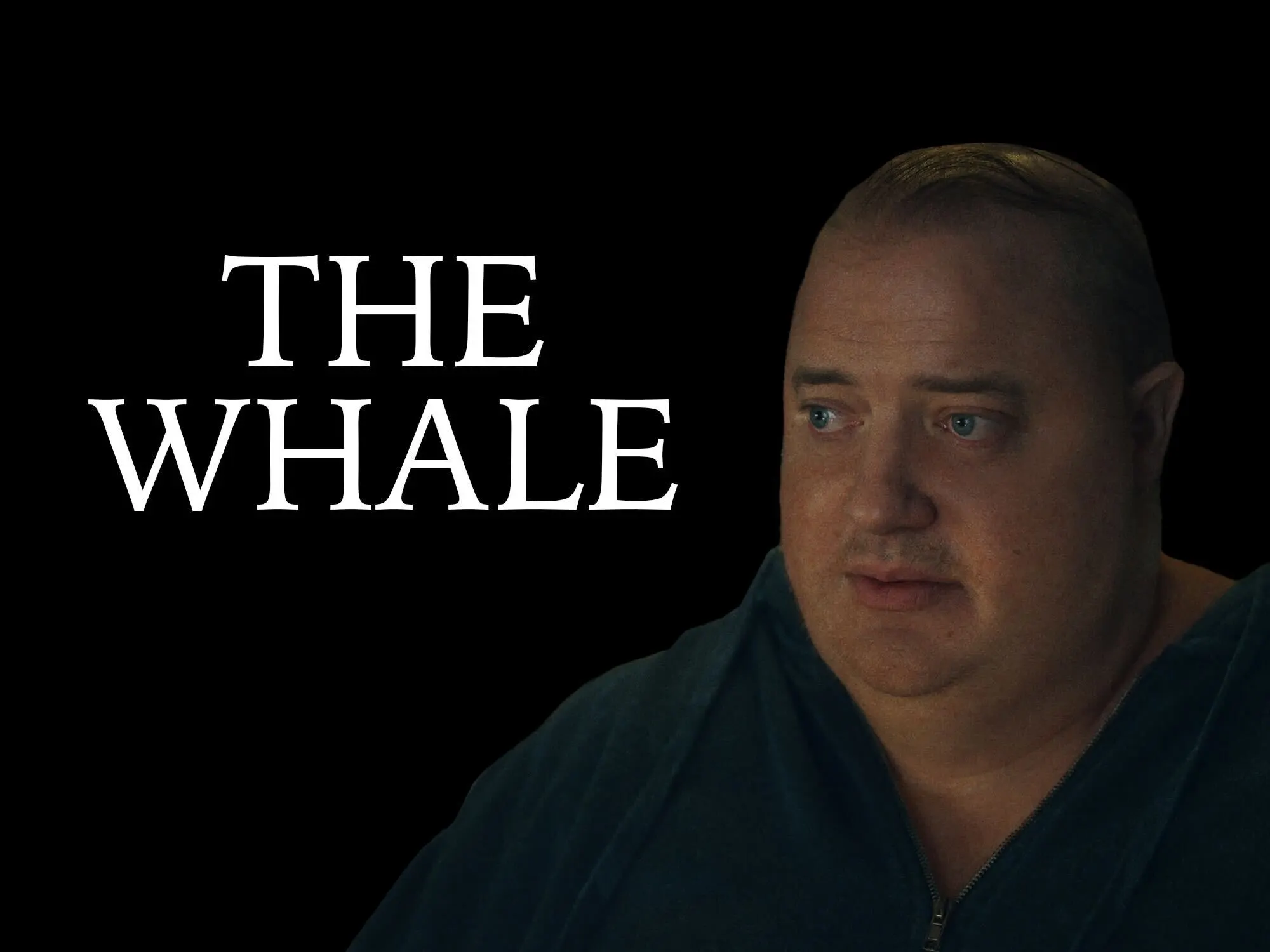A DVD box set of “The Mummy” (1999) sits on my childhood bookshelf, collecting dust. It’s a nostalgic monument to the nights spent rewatching Brendan Fraser’s performance, curled up on the couch with my mom and a bowl of popcorn.
While Fraser’s performance in 1999 will always have a special place in my heart — cheesy special effects and all — his 2022 performance in “The Whale” rocked me to my core.
In the 2022 film, Fraser plays Charlie, a morbidly obese English teacher attempting to reconcile with his estranged teenage daughter Ellie (Sadie Sink). Over the course of a week, Charlie never leaves his house. His health is rapidly deteriorating, with simple white text noting the passage of time as Charlie races to make amends with various loved ones before his rapidly approaching death.
So, yeah — it’s not a lighthearted flick. I’ve never watched a movie that kept me in such an uncomfortable state for its entire duration. Stuck with Charlie through enclosing cinematography, we felt his claustrophobia, self-loathing and regret, and we were forced to reckon with it. The film’s close-up shots and an ominous score combined to successfully explore pain with intimacy and brutality. Director Darren Aronofsky successfully uses film to create a unique emotive response, just as he did in his hit “The Black Swan.”
Fraser is the star, though. His lines are spoken with a quiet roughness that immediately tugs at the heartstrings, depicting a nuanced man who is trying his best but continues to fail. We empathize with Charlie’s mistakes, such as when he finds out Ellie is struggling in school. At first, he panics out of genuine concern, but instead of productively intervening he offers to write her school essays in exchange for company. Time and time again Charlie acts with good intentions yet makes fantastic blunders, and Fraser’s emotive performance paints this tortured back and forth perfectly.
Hong Chau, playing Charlie’s best friend and nurse Liz, similarly gave a top-notch performance. She delivers a character with nuance as Liz struggles to balance her desires for Charlie’s health with those for his happiness. She begs him to go to the hospital, but never forces him; she begs for him to be more active, but helps supply his sedentary lifestyle. The rest of the cast was passable, but not notable, leaning slightly too deeply into an over-the-top, screechy melodrama.
Though Fraser’s performance was one of the best I’ve ever seen, and many of the film’s artistic choices excelled in creating a world-bending emotive experience, much of “The Whale’s” angle made me uncomfortable — and not in a good way.
The movie could have been a story of empathy and acceptance, but instead took a tone of pity and voyeurism. Charlie is the picture of self-loathing — to calm himself down, he reads aloud a “Moby Dick” essay that pities the whale for being “a poor big animal” for a not-so-subtle metaphor between himself and the whale. Fatness is a metaphor for Charlie’s self-destruction, but that metaphor only works if you accept the disturbing idea of fatness as “disgusting.” While effects like emphasizing the sounds of Charlie’s eating create an immersive audio experience, they turn Charlie into a spectacle that emphasizes the supposed grossness of eating. “The Whale” shames larger bodies as being somehow inferior, wrong and inherently self-destructive. Repeatedly, the film embraces simplistic and harmful assumptions about weight that viewers are expected to patronizingly endorse.
As much as I loved Fraser’s performance, even his casting raises questions. Fraser wore elaborate prosthetics to appear Charlie’s size. As New York Times writer Farah Fleurima questions, “Why doesn’t Hollywood simply hire big actors to play big characters?” If smaller actors keep getting cast as characters of larger size, where are the roles for larger-sized actors?
“The Whale” has the components of a good movie, with incredible acting from Fraser and boundary-pushing artistic choices from Aronofsky, but it undermines itself by upholding a problematic status quo instead of promoting critical thinking. I’m disappointed by this shallow perspective but nonetheless excited for Fraser’s inevitable film comeback.
Editor’s Note: This article is a review and includes subjective thoughts, opinions and critiques.
